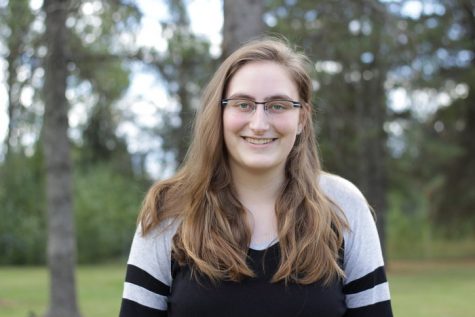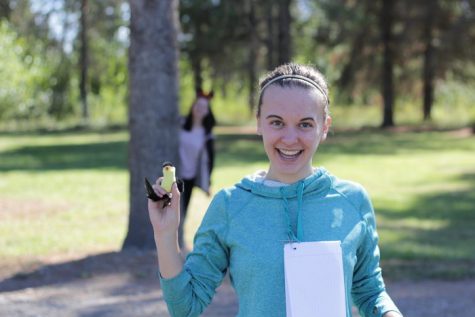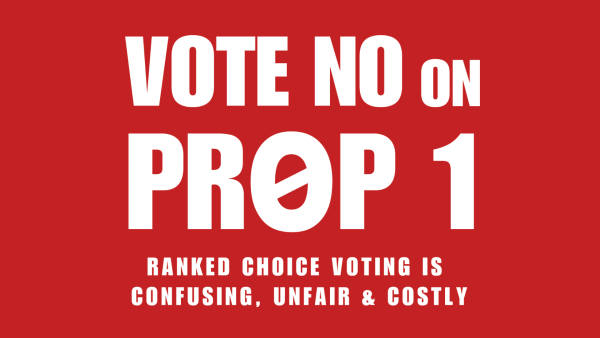PERMISSION GRANTED
Many students often don’t feel comfortable discussing their beliefs, even in the age of postmodern philosophy
While Sandpoint High School has been sensitive to religious topics in class, many students feel that a broader cultural shift to complete tolerance is still yet to be made.
“Usually people here are Christian and Mormon, and [Buddhism] is very different from that,” freshman Enna Nguyen said. “I think they think it’s a little weird and out of the ordinary, but for me it’s just normal.”
Postmodernism is a philosophy that has begun to create the cultural shift toward tolerance.
According to Encyclopedia Brittanica, postmodernism is “a late 20th-century movement characterized by broad skepticism, subjectivism, or relativism; a general suspicion of reason; and an acute sensitivity to the role of ideology in asserting and maintaining political and economic power.”
In theory, postmodern philosophy should open the door for people to express their whole person, but students feel that has not yet been fully applied at SHS.
“I think people put labels on religions and don’t bother actually figuring out if those things are true or not,” sophomore Kassidy Walker, Mormon, said. “It happens to all religions really.”
Erica Haynes’ world history class just finished a unit on world religions. She has found that students are often uncomfortable talking about religion in class.
“When I talk about religion, the first thing that happens is everybody’s hair on the back of their neck goes up,” Haynes said. “You have to be very specific, otherwise people very easily misconstrue everything you say.”
For example, students in her World History class were unsettled by the realization that Islam, Judaism, and Christianity have similar roots traced back to Abraham.
“The three main monotheistic religions had a lot more in common than I realized,” freshman HanneMae Witthaus, atheist, said.
Psychology teacher Scott Fitchett theorizes that students who hold a postmodern viewpoint have a different problem with religion.
“Students are uncomfortable being confronted with the idea that some truths may be absolute and that they may be living outside of the parameters of the way the universe works,” Fitchett said.
On March 8 Yousif Kaddoura, the president of a Muslim organization in Spokane, Washington, visited Connor Baranski’s cultural anthropology class to discuss how religion plays a part in Moroccan culture.
Before Kaddoura made his visit to SHS, students were required to take home a permission slip as required by board policy 2340. The policy states that “the school shall provide for parents to have their child excused from a topic which may be contrary to their religious or moral values.”
Baranski said that only one student has opted out in the two years that he has invited Kaddoura to speak.
“I tried to iterate to the students that this is not Mr. Albertson being intolerant of a religion,” Baranski said. “He’s trying to be considerate of all stakeholders.”
Postmodernism strives to work against the rigid belief systems imposed during the modern philosophical era to create more tolerance and understanding, but when one religion claims to be absolute truth it goes against the relativism that the postmodern viewpoint values.
“I don’t mind hearing about other people’s religions as long as they’re not trying to convert me,” freshman Greg Steiner, Christian, said.
On the other hand, many students are still hesitant to talk about their faith, suggesting that postmodernism is not quite living up to its full potential.
Junior Kaly Scheel, a Christian, said she was hesitant to respond to the schoology post asking for interviews on this topic.
“It was one of those things where I thought, ‘I should do that, because that means I’m open about my faith,’ which is hard to do sometimes, especially in high school,” Scheel said.
That hesitation was echoed in six other interviews.
“I think a lot of people get scared when [religion] comes up in a conversation because they’re not quite sure what they themselves believe in or they don’t want to offend anyone,” senior Christian Megan Price-Williams said. “It’s something people avoid because they don’t want to face the possibility of rejection.”
While students have been granted permission to speak about faith by postmodernism, many still feel marginalized in the applications of that philosophy.

Lauren Sfeir is a Senior and is Photo Editor for the Cedar Post. This is her second year on staff.











